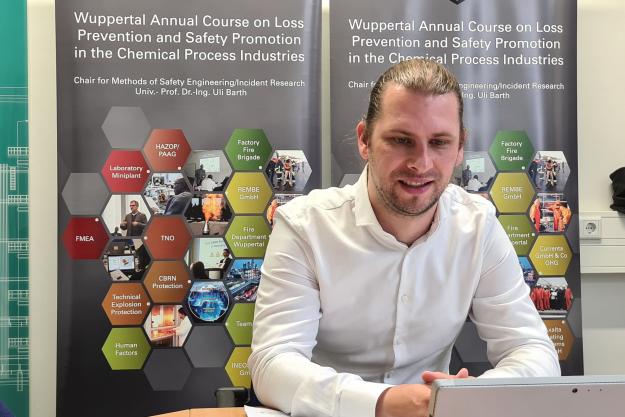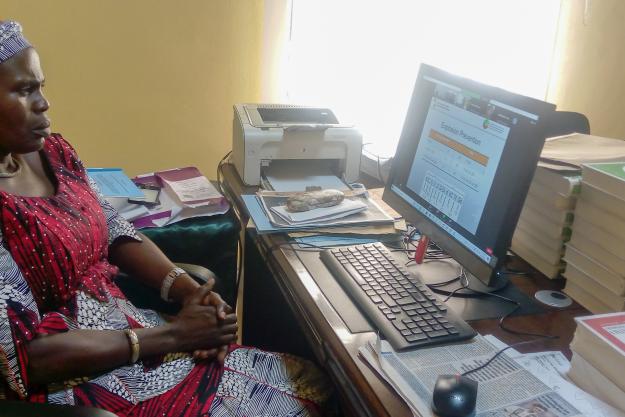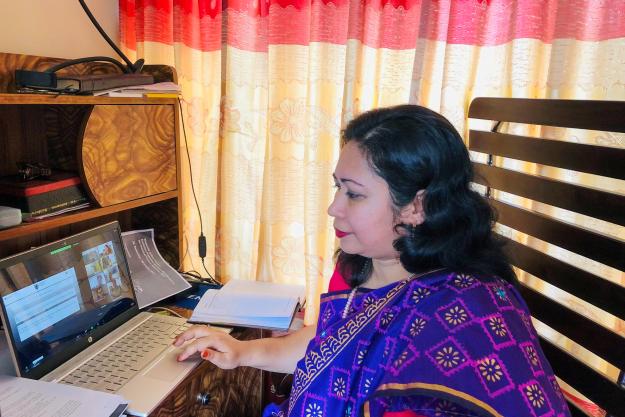
THE HAGUE, Netherlands —8 October 2021— Government agencies, industry, and representatives of academia from over 20 Member States of the Organisation for the Prohibition of Chemical Weapons (OPCW) improved their capacity to protect against explosions in a chemical industry setting during an online course held from 6 September to 8 October. The training was conducted by the OPCW in partnership with the University of Wuppertal (UW), Germany.
The Deputy Permanent Representative of the Federal Republic of Germany to the OPCW, Ms Bianca Müller, stressed in her opening remarks Germany’s commitment to chemical safety and security and the country’s active involvement in capacity building in this area. She noted: “Building such capacities across all OPCW Member States is key to ensuring full implementation of the Chemical Weapons Convention.”
OPCW’s Senior Programme Officer from the International Cooperation Branch, Dr Rohan Perera, noted: “For the past 12 years, the OPCW has enjoyed an important and productive partnership with the German Federal Foreign Office and the University of Wuppertal. This collaboration has been instrumental in strengthening international cooperation in the field of chemistry and fostering the economic and technological development of OPCW Member States, as enshrined in Article XI of the Chemical Weapons Convention.”

The course assembled a wide array of participants from Africa, Asia, Latin America, and the Caribbean. The participants attended five interactive sessions covering topics such as explosion basics, assessment of explosion risks, safety characteristics of substances, classification of hazardous areas, and explosion protection measures.
During the practical section, a miniature model of a chemical reactor —the ‘Wuppertal mini-plant’— was used during interactive assignments.
The programme also included two live online seminars about individual-level and organisational aspects of error and error management.
The course was developed by UW experts under the leadership of Project Director, Dr Alexey Leksin, and the Head of Methods of Safety Engineering and Incident Research, Professor Uli Barth. Human Factors Research and Training, a research institute from Ludwigsburg, Germany, contributed to the design of online seminars.
Twenty-four attendees represented governments, National Authorities, chemical industry, and academia of the following 21 OPCW Member States: Bangladesh, Brazil, Chile, Costa Rica, Cyprus, Ethiopia, Ghana, Grenada, India, Kenya, Malaysia, Maldives, Mauritania, Mauritius, Nigeria, Peru, Philippines, Seychelles, South Africa, Sri Lanka, and Tunisia.

Background
As the implementing body for the Chemical Weapons Convention, the OPCW, with its 193 Member States, oversees the global endeavour to permanently eliminate chemical weapons. Since the Convention’s entry into force in 1997, it is the most successful disarmament treaty eliminating an entire class of weapons of mass destruction.
Over 98% of all declared chemical weapon stockpiles have been destroyed under OPCW verification. For its extensive efforts in eliminating chemical weapons, the OPCW received the 2013 Nobel Peace Prize.
